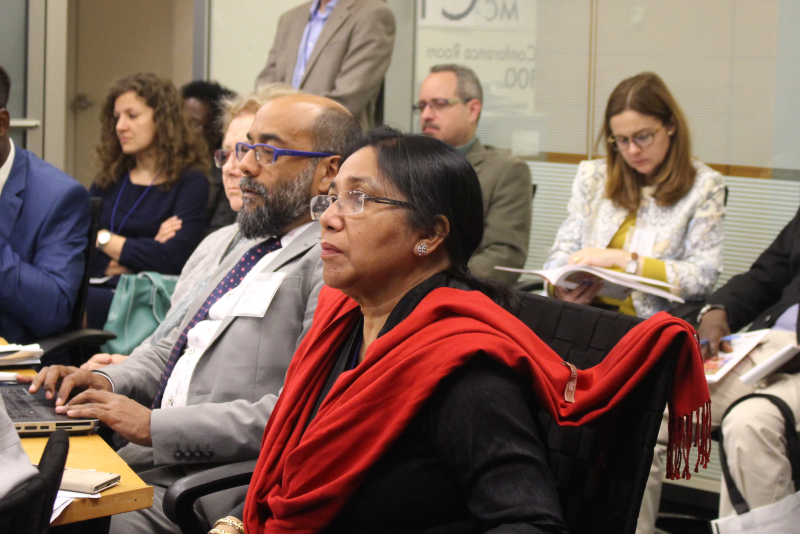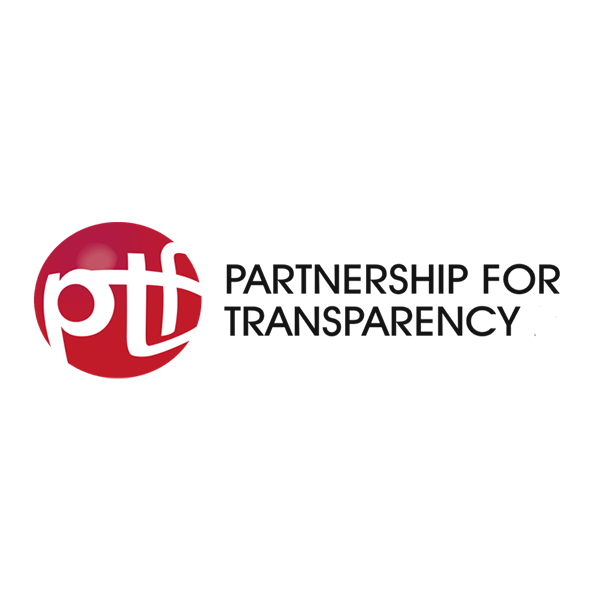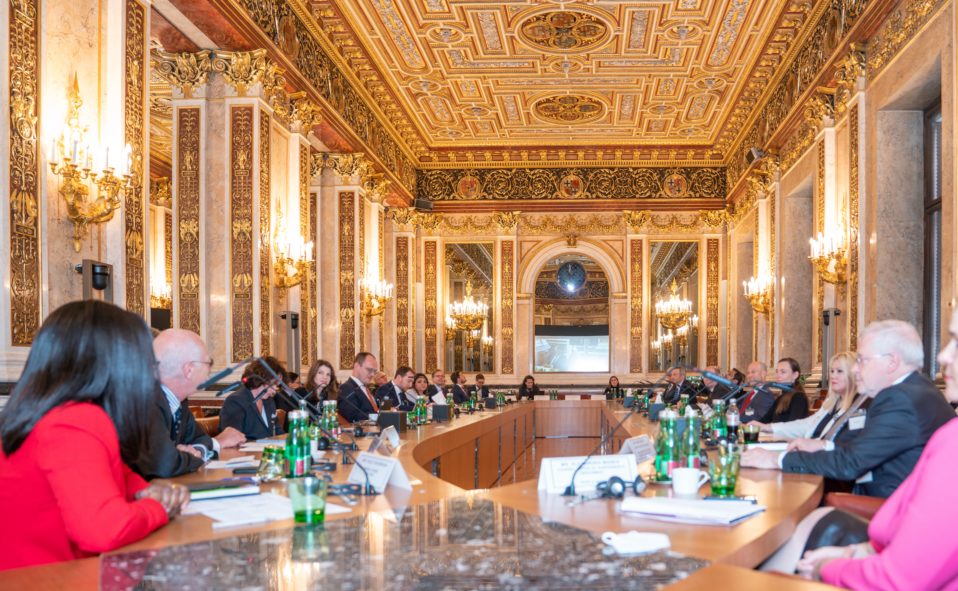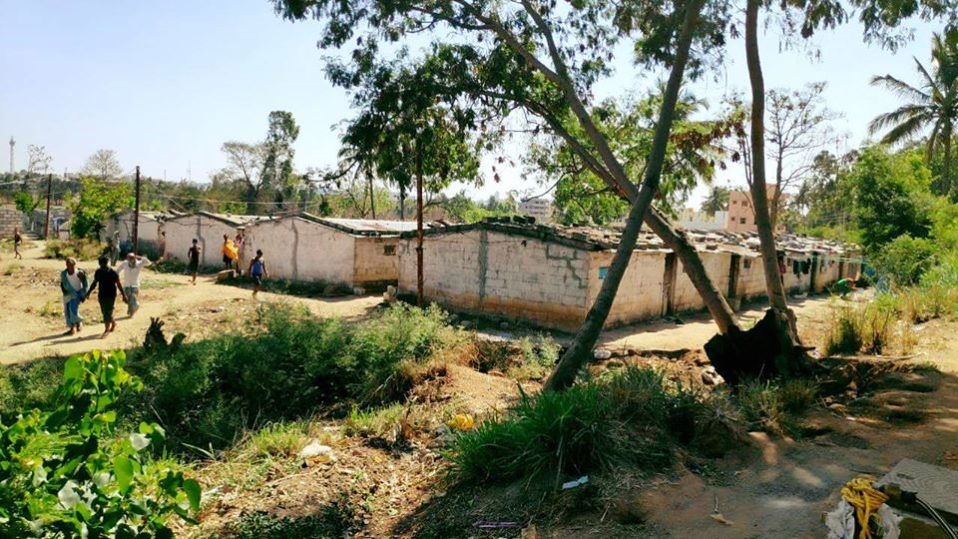On May 19th, the Partnership for Transparency Fund (PTF) participated in a panel discussion on “New Frontiers in Citizen Engagement in World Bank Projects” at the annual GPSA Global Partners Forum, hosted by the World Bank. PTF Project Advisors Fred Temple and Vinay Bhargava joined Shahin Kauser, Technical Officer at Manusher Jonno Foundation, and Utpal …
Time for New Partnerships With Civil Society for the World Bank’s International Development Association
Partnership for Transparency Releases New Report: “Enhancing Citizen-Driven Delivery and Accountability in International Development Association (IDA) Operations”. To improve its effectiveness – in reducing waste, management inefficiencies, and countering corruption – the world’s largest multilateral agency serving the poorest countries, the International Development Association (IDA), now needs to forge major partnerships with in-country civil society organizations (CSO), according to the findings of a major study by the Partnership for Transparency (PTF). “Direct funding support to civil society organizations in the poorest countries by the World Bank is minimal, and now it must be scaled up,” said Vinay Bhargava, PTF’s Chief Technical Advisor and an author of the new study. Bhargava added: “Citizen engagement is the driver of change and the World Bank needs to harness its power and its skills in the poorest countries. We believe that even a very small percentage of IDA’s funds committed to funding CSO partnerships can have a major impact.” The report is based on consultations in 2023 with civil society in different parts of the world. It is published at a time when the World Bank is moving towards greater recognition of the value added of CSOs in strengthening its projects. PTF, founded in 1998, has supported CSOs in over 60 countries in projects that have aimed to counter corruption in a variety of sectors. IDA is funded every 3 years, with the current cycle amounting to $93 billion, a sum which will potentially increase to $120 billion for 2025-2028. The report suggests that IDA should dedicate between $200 million and $500 million to support civil society organizations (CSOs) in contributing to and monitoring the implementation of its projects and programs. This would equate to roughly 0.5% of its spending. The report noted that 59% of current IDA projects are rated as having “high” or “substantial” institutional capacity risks by the World Bank. The report describes mechanisms that can provide predictable funding to civil society at a time when civic space is shrinking while also increasing accountability for donors in the world’s poorest countries. It would enable civil society to track substantial and high-risk IDA spending in a win-win for civil society and the World Bank by providing accountability to World Bank stakeholders. PTF will advocate for the adoption of its recommendations in the lead-up to the World Bank Spring Ministerial Meeting in mid-April. The report can be found at: ptfund.org/idastudy Partnership for Transparency (PTF) supports innovative CSO-led approaches reduce corruption, increase transparency, strengthen governance, and enhance accountability in low- and middle income economies. Since 2000, PTF has supported over 280 CSO-led in more than 50 countries.
Partnering with Civil Society for Citizen-Driven Country Engagement, Delivery, and Accountability in IDA- and IBRD-Financed Operations Report
This report makes ten recommendations on how partnerships with citizens and civil society organizations can be deepened in IDA and IBRD engagement, financing, and accountability activities at the country level.
The World Bank’s Evolution Playbook Must Include Expanded Partnerships With Civil Society to Combat Waste, Fraud, and Corruption in the Projects and Programs It Finances
By John Clark, Vinay Bhargava, and Pierre Landell-Mills October 2023 The World Bank Group (the Bank) is embarking on an “Evolution“ strategy through which it aims “to become a ‘better and bigger bank’ that is fit-for-purpose to respond to the most pressing needs of people and the planet”, in particular the global challenges of ending poverty and problems of climate change, pandemics, and conflicts. To achieve this, the Bank seeks greatly increased resources, perhaps a tripling of funds. However, to date, this new strategy has said very little about how the Bank intends to guard against the heightened risks of leakage. In the stakeholder consultation for the Evolution, many noted that the Evolution would magnify the challenge of identifying and preventing waste, fraud, and corruption (WFC) in public spending that is inherent to varying degrees in all countries that receive Bank financing. They have called for greater engagement with civil society, more emphasis on transparency and accountability, and improved governance and anti-corruption measures. Rigorous attention to plugging such leaks is essential to enhance value for money for both recipient and donor countries and critical for gaining donor support. In our view, it should be made an essential component of the Evolution proposal. The Bank itself recognizes the scale of the problem. It estimates that corruption accounts for between ten to 25 percent of public spending globally and, as of September 26, 2023, up to $67 billion of its funding for active projects (about 20 percent of the total commitments) are at ‘High’ risk of loss of funds due to fiduciary and/or governance shortcomings or, more simply put, corruption. In numerous reports, the Bank has noted that to address these risks, it is insufficient to rely on borrowers’ transparency and accountability systems and its own procurement and financial management policies. It needs a more robust and innovative toolkit. Addressing these concerns poses exceptional challenges. Corruption is intimately related to the exercise of governmental power. The proceeds of corruption are used both by political leaders to hold on to power and for the personal enrichment of public officials. Consequently, those in power perennially seek to undermine the official systems of accountability, while pretending otherwise. Ultimately, curbing corruption depends always and profoundly on citizen action, or the threat of such action, to hold public officials within a country accountable. This can only be achieved by strengthening the capacity of independent non-governmental organizations and investigative journalism to act as watchdogs, monitor the implementation of public programs and projects, track public expenditure, and publicly expose malfeasance. The Bank and its financiers should recognize their strong vested interest in fostering new approaches and partnerships to ensure that everything possible is done to prevent leakage. A rich literature demonstrates the efficacy of civil society actions to turn the spotlight on corruption, identify losses, and heighten accountability. Indeed, over the years, civil society has helped expose many cases of fraud, corruption, and other malpractice in Bank operations, which, in recent years, led to the Vice-President for Integrity to say “We must also support the watchdogs and advocates on the ground, including civil society organizations and independent media, who […]
Partnership for Transparency Calls for Strengthening Partnerships with Citizens and Civil Society Organizations in the World Bank Group Evolution for Greater Impact
Partnership for Transparency (PTF) prepared a response to the World Bank Group’s request for comments on the Evolution proposals paper. PTF’s comments focus on the roles that citizens and civil society organizations (CSOs) could play in enhancing the development impact and accountability of the proposed expanded levels of financing under the enhanced mission of the World Bank Group (WBG). PTF recommends four specific actions to ensure greater citizen/CSO engagement in the WBG’s operations, which are based on a draft study by PTF: • Recommendation #1: Update the 2014 Citizen Engagement Framework and associated indicators in the Corporate Scorecard in line with the aspirations of the Evolution proposals • Recommendation #2: Articulate the roles CSOs could/would play in the new operating model as development partners and the actions the WBG would proactively take to promote meaningful CSO engagement • Recommendation #3: Close funding gaps for local CSO involvement in Bank-supported lending and country engagement activities in borrower countries • Recommendation #4: Expand partnerships with citizens and CSOs to prevent waste, fraud, and corruption PTF’s comments on the Evolution proposals paper are available here.
Call for Feedback on the PTF-OSF Study on How to Expand and Adequately Fund Civil Society Organization Engagement in the Implementation of the $93 Billion IDA20 Program
The largest concessional lending program for the world’s poorest countries now needs to boost the roles of and funding for civil society in helping governments deliver results with accountability in the projects it funds says Partnership for Transparency (PTF). Implementation of the largest ever 20th replenishment of the World Bank’s International Development Association (IDA20) is just beginning. It will provide $93 billion over three years (2022 to 2025) for development projects and programs in the poorest 74 countries in the world. “IDA20 is a welcome and timely initiative when the world’s poorest peoples are even more vulnerable due to COVID-19, global economic shocks, rising inflation, and climate change. We fully support it. However, IDA can make a difference in the lives of the poor only if it is implemented efficiently with accountability in use of funds. Evidence is clear that governments partnering with civil society deliver more and better results and value for money. This is a time when IDA-implementing agencies should recognize and fully engage the expertise of local civil society organizations (CSOs) in strengthening the impact of IDA-funded programs and the World Bank should proactively promote expansion of CSO engagement in IDA,” says Dr. Vinay Bhargava, Chief Technical Advisor at PTF. With funding from the Open Society Foundations, PTF has drafted a report on “Enhancing Citizen-Driven Delivery and Accountability in IDA Operations”. On December 15, 2022, Vinay Bhargava presented the study’s emerging findings and recommendations at a seminar on the role of CSOs in IDA sponsored by the Center for Global Development and the Transparency and Accountability Initiative. A video of the event can be seen here. A copy of the PTF presentation is available here and a two-page briefing on emerging findings and recommendations can be downloaded here. PTF is now making the draft report available for public consultation through the end of April 2023. PTF invites comments and suggestions on the draft study. Please feel free to provide feedback to Vinay Bhargava at info@ptfund.org. The report details four compelling reasons for elevating the roles of civil society organizations (CSOs) in the projects and programs supported by the International Development Association (IDA), the concessional grant affiliate of the World Bank group: 1. CSOs can help deliver more and faster results. 2. Their expertise in promoting inclusive development will enable IDA to better achieve its goals. 3. CSOs can build citizen ownership and support of development policies and provide independent monitoring of funding for projects. 4. Their engagement can deliver greater value for aid money by constructively engaging with government accountability institutions to identify and prevent inefficiencies, waste, and corruption. The study finds that a good foundation for such an expansion in IDA exists as the World Bank Group (that includes IDA) recognizes the evidence that citizen, stakeholder, and civil society engagement improves development effectiveness and the IDA has progressively adopted policies and targets to promote CSO engagement. The study also finds that CSOs have the potential to contribute much more to enhancing citizen driven delivery and accountability in IDA. In light of this, PTF calls on IDA to: 1. take proactive actions to expand and adequately fund […]
A Supranational Response to Corruption: The Case for CSO Engagement
Around the world, nearly one in four people still pay bribes to access essential services, demonstrating that despite the surge of anti-corruption legislation and initiatives in recent years, successful progress will depend upon a whole-of-society, rather than a top-down approach. “Bribery in public service delivery is still widespread, and success in fighting it has been limited. Governments alone will not be able to deliver the Agenda 2030 goals. Civil society can and should play an active role to close this gap,” said PTF Adviser Dr. Hady Fink at a recent international forum. He claimed that civil society organizations (CSOs) can play a significant role in the fight against corruption and should be involved in efforts to increase transparency and integrity, particularly in public service delivery.
Promoting Support for CSO Engagement in IDA20
The advocacy to increase meaningful funding and support for civil society engagement in World Bank operations has intensified against the backdrop of the new replenishment cycle for the International Development Association (IDA). At a recent IDA meeting with civil society organizations (CSOs), PTF joined to speak out in support of this cause.
Argentine CSO Demonstrates Power of Citizen Engagement in COVID-19 Response
Following several years of project design and relations building with Malawian and international organizations, PTF completed a full proposal for funding from the European Union for a procurement monitoring project: Strengthening the Capacity of CSOs to Promote Transparency and Accountability in Public Infrastructure Projects in Malawi.
Funding for the project was approved in August 2019 and the project was scheduled to begin in November 2019, but implementation was put on hold due to the COVID-19 pandemic. As the COVID-19 situation improved, the project commenced its activities in November 2020.
Challenge One: Confronting The World’s Unprecedented Humanitarian Crisis
The world faces an unprecedented humanitarian crisis. The impact of the pandemic on middle- and low-income countries is significantly greater than the enormously challenging situation in Western industrial nations. It is too early to gauge with any accuracy the full scale of the global humanitarian crisis, but not too late to focus public attention on the essential actions that are needed to mitigate the crisis. However, the governments of the Western wealthy countries are so preoccupied with striving to deal with all the bitter consequences of the pandemic in their own countries that they have failed, so far, to address meaningfully the unfolding development crisis that may well set the poorest nations back by at least a decade, if not more.






